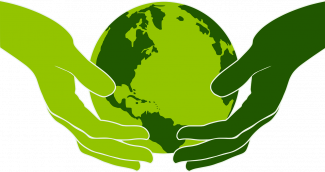By formally recognizing the Right to a Clean, Healthy, and Sustainable Environment through two separate resolutions in 2022, the United Nations has set the stage for a more just and inclusive world. Big headlines like this often overlook all the background work necessary to make it happen. That’s what makes the 2023 UN Human Rights Prize incredibly exciting. Presented every five years, the UN Human Rights Prize committee has selected the Global Coalition of Civil Society, Indigenous Peoples, Social Movements and Local Communities for the Recognition of the Right to a Clean Healthy and Sustainable Environment (Global Coalition) as one of this year’s recipients. The Coalition is a cumulation of countless hours, grassroots organizing, wisdom from Indigenous and front-line communities, lessons from youth, and much more. The UN Human Rights Prize acknowledges this work and celebrates what happens when a diverse, committed, and passionate group collaborates for a common good.
The Environmental Law Institute (ELI) is honored to be a part of the Global Coalition.

The 2023 Award coincides with the 75th anniversary of the UN Declaration of Human Rights and is a tremendous achievement. Past awardees include Nelson and Winnie Mandela, Reverend Dr. Martin Luther King Jr., Malala Yousafzai, and the Mano River Women’s Peace Network in West Africa, among other esteemed recipients.
ELI has had the privilege to support this work through innovative research, education initiatives, and convening open and honest dialogues. ELI supported the Global Coalition in 2022 with a three-part webinar series. Presented in collaboration with the Delaware Law’s Global Environmental Rights Institute, Barry University’s Center for Earth Jurisprudence, the American Bar Association (ABA) Section of Environment, Energy, and Resources (SEER), the ABA Section of Civil Rights and Social Justice (CRSJ), and the ABA Center for Human Rights, the series focused on the international, national, and subnational recognition of the right to a healthy environment. The series launched just before the UN General Assembly began its debate on the recognition of this right.
The webinars had a host of internationally renowned experts, including two Special Rapporteurs on Human Rights and the Environment, the Director of the UN Environment Programme’s (UNEP’s) Law Division, judges, academics, government officials, and leaders from civil society. The series helped deepen the conversation about this right and responded to a very timely and urgent need for more information to the public as the debates commenced.
ELI has a long history of working on participatory rights, including advancing access to information, public participation, and access to justice in dozens of countries. The right to a healthy environment has played a pivotal role in our work, including in our drafting of UNEP’s Environmental Rule of Law: First Global Report and our work on Migration with Dignity. ELI also works on issues facing environmental defenders, with work in Peru outlining best practices in the protection of defenders and how amicus briefs can support their work. Future plans include more work on climate change and the rights of persons with disabilities. This is a particular interest of mine and bridges my work at ELI and my past work at human rights NGOs.
While this Prize is a wonderful achievement and deserves a moment of celebration, the work has only just begun. Recognizing the right to a clean, healthy, and sustainable environment is admirable, but making sure it is a reality for all is quite a different matter. ELI will continue to support this work with its innovative and thought-provoking research, education initiatives, and convening of diverse viewpoints for open dialogue.
